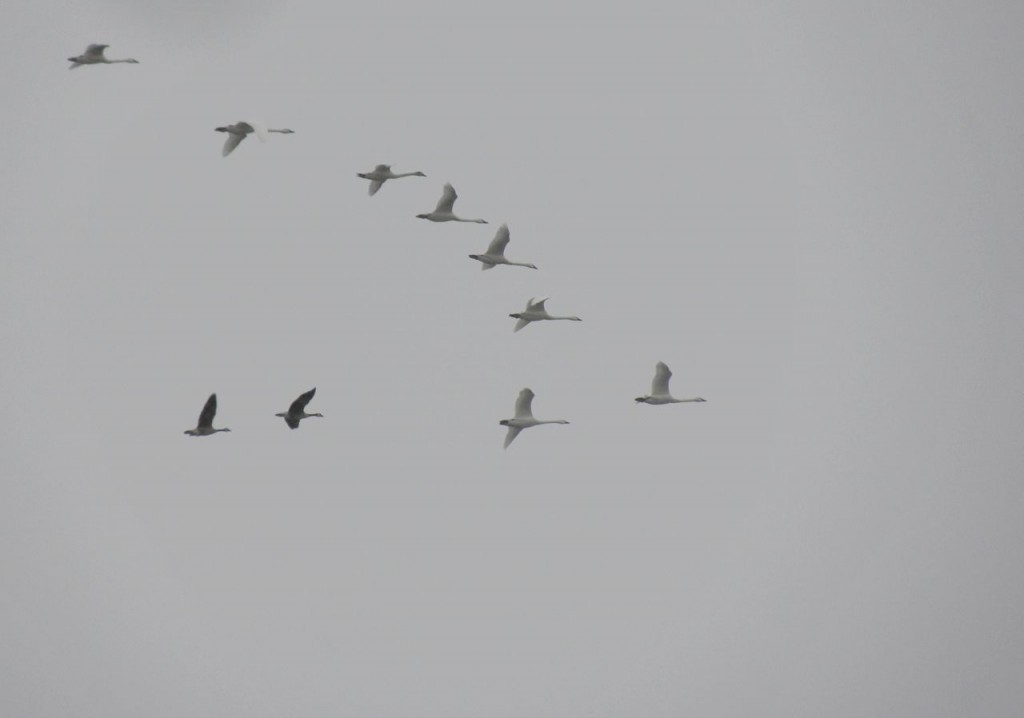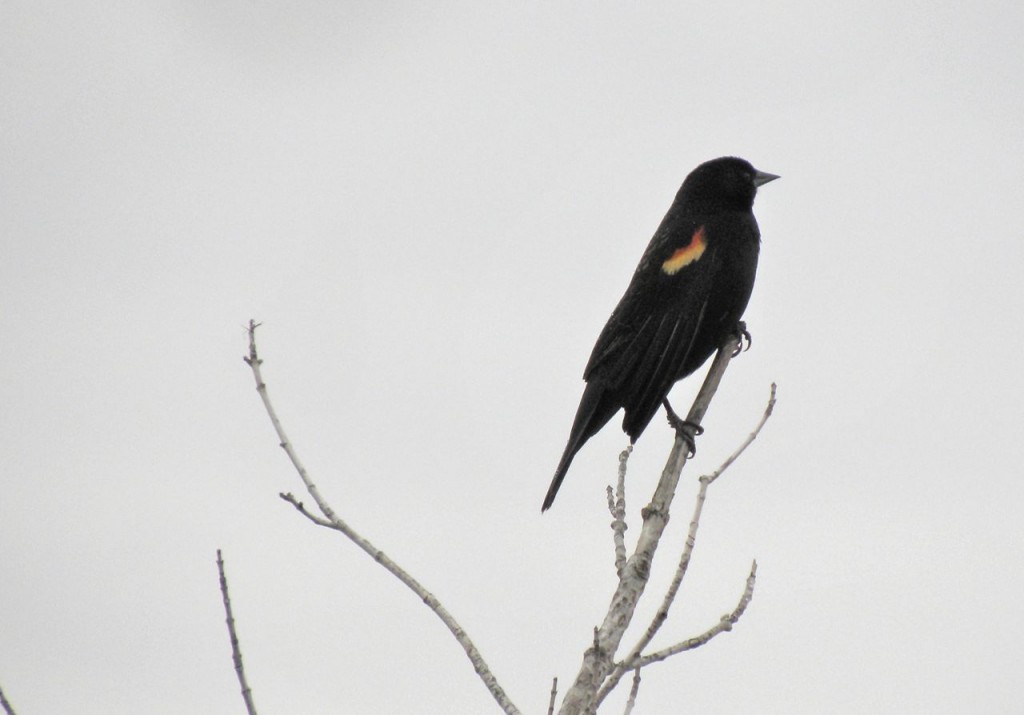11 March 2013. Tundra Swans, a touch repetitive I know, after all they were my Bird of the Day a couple of weeks ago. But today was a landmark day, the swans’ return.
These elegant and seemingly gentle birds breed in Alaska and Canada’s far north, and winter (most of them) in their hundreds of thousands along the Atlantic coast and around Chesapeake Bay. Somehow in very early March they know that the ice is retreating, so in what must be an amazing spectacle, the wintering flocks lift off en masse and head north-west. The non-stop, first leg of their flight takes them about 500 miles to the Lower Great Lakes, Lake Erie in particular, with many of them passing right overhead; over my head that is.
I had been expecting them for a couple of days now and this morning, reading the newspaper with coffee in hand, I thought I heard the faint call of swans! I was too slow and there was no sign of them by the time I scrambled outside. An hour or so later, as I left the house to go to the gym, right overhead was a large V formation of perhaps 120 Tundra Swans, I couldn’t have asked for more, although it got better because another two large Vs were following close behind.

Now, what’s special about this is the drama and beauty (in the eye of the beholder admittedly) of the moment, the confirmation that spring is upon us, the undulation and flashing white of the flock and the music of their characteristic whistling “whoo… whoo” as they go. Several more times during this cloudy and often rainy day, more skeins of Tundra Swans passed over, each group as arresting as the first sighting.
Worth noting, but hopelessly overshadowed by the swans, was hearing and seeing the first male Red-winged Blackbirds of the year standing sentinel around a wetland. I was intrigued by the fact that they were not yet down in the cattails as they will be before long; rather they were posted high around the perimeter of the wetland as if overseeing it from afar. As more males arrive I expect to see them move in to establish the boundaries of their piece of paradise. They’ll squabble over boundaries, reworking the shape of their jigsaw of territories and then they’ll have something to offer the females who’ll follow in a few weeks.
